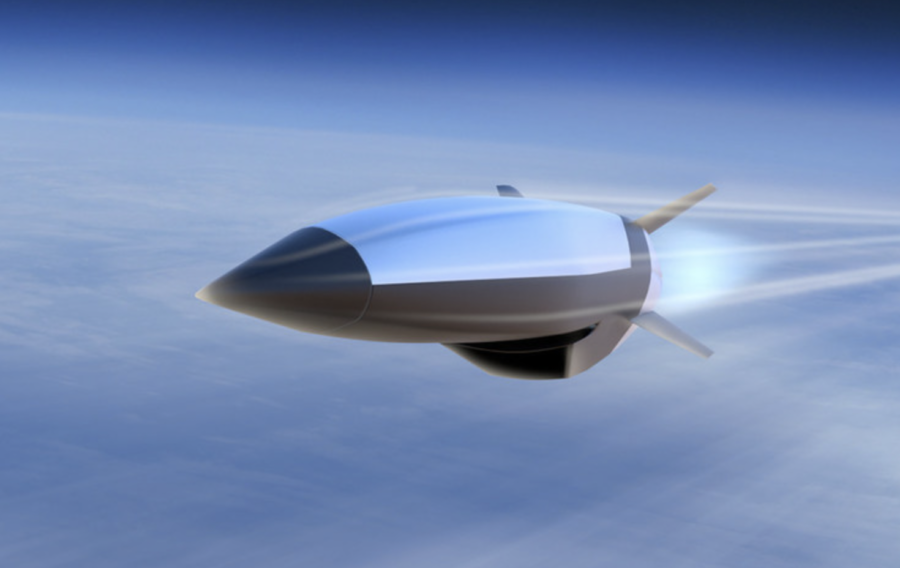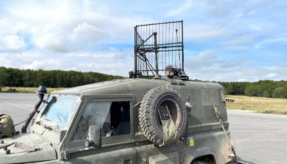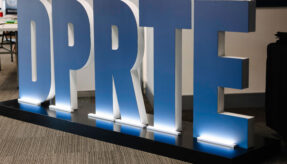
How DASA teamed up with defence primes, Government and industry innovators to develop novel missiles that can talk to each other.
Smarter, cooperative missile technology holds huge potential for defence, offering an enhanced capability beyond that of single missiles. Cooperative missiles are designed to communicate with one another, share situational awareness, and coordinate their actions to work together within operator-set constraints to achieve a common objective during an engagement.
The ability to improve missile flexibility and responsiveness, allowing them to react to emerging threats and adapt to changing situations, is a challenge that the defence sector is determined to solve.
To address this, DASA launched the themed competition “It’s good for missiles to talk,” in 2022, on behalf of the Dstl. Funding was provided by the MOD and forms part of the Cooperative Missile Project. This initial phase funded ten innovations aimed at providing valuable insights into how cooperative missiles could work.
Building on the success of Phase 1, DASA took the competition to the next level the following year launching Phase 2 in 2023, which focused on building dynamic partnerships with defence Primes, government customers, and industry. This new phase also aimed to deepen the MODs understanding of cooperative missile technology and explore its practical applications, and exploitation routes, pushing the boundaries of missile capabilities.
On the outset of the competition, DASA aimed to foster collaboration among all stakeholders, ensuring the best outcomes. Securing buy-in from major UK Defence Primes, Thales and MBDA, was crucial to this goal. Their missile technology expertise would not only aid in the development of the competition document but would also provide help to MOD technical assessors in evaluating innovations, ensuring feasibility and exploitability. This marked the first ever DASA competition with direct support from UK defence primes, highlighting the importance of industry partnership in advancing national defence capabilities.
Another essential aspect of the collaborative approach to the competition was the establishment of strong synergies between DE&S. In defence, it’s common for innovation organisations to work on similar technologies and research. Here, DASA aimed to pinpoint synergies within their respective scopes of work. This would help outline the competition requirements, set clear and measurable objectives, and disentangle interdependencies among challenge areas. The final outcome was a competition document that emphasised shared and achievable goals for all stakeholders.
During the course of the competition, DASA helped maintain these cross-functional relationships, pinpoint key individuals to harness collective wisdom, established goals responsibilities, and organised weekly team meetings to promote mutual support and ensure a unified approach in decision-making.
By securing willingness from Thales and MBDA to collaborate with the MOD Technical Partners, and establishing synergies between Dstl and DE&S, the competition produced six innovative funded technologies with a total investment of £1.4M. The collaboration with industry partners and government significantly improved the potential for outcomes, accelerating the exploitation process.
The funded technologies were from a mix of universities, large organisations and SMEs.
Bornea Dynamics
A technique to deploy neural networks and other advanced processing/communication algorithms.
Swansea University
An innovation for improving antenna capabilities, particularly in terms of bandwidth coverage and beam steering.
University of Birmingham
A solution for horizon path planning for a network of cooperative missiles.
Origami Labs UK Ltd.
A collaborative sensing technology to help provide an adaptive, dynamic planning capability for missiles.
University of Liverpool
Automated routing information for missiles in-flight that allows them to maximise use of terrain screening for survivability.
General Dynamics UK Ltd
A capability for missiles to propose new engagement plans while the missiles are in flight.
Learn more about the competition here: It’s Good for Missiles to Talk: Phase 2
If you would like to join our community and read more articles like this then please click here








